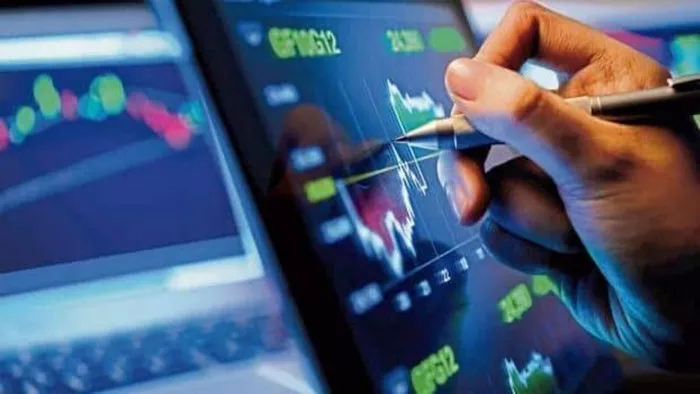Investing in commodities futures offers investors a way to potentially profit from price movements in raw materials like metals, energy products, and agricultural goods. Cobalt, a critical component in rechargeable batteries and industrial applications, has garnered attention as a commodity investment due to its essential role in the rapidly growing electric vehicle (EV) and renewable energy sectors. This article explores the fundamentals of cobalt futures trading, how to invest in cobalt futures, market dynamics, risks, and strategies for navigating this niche commodity market.
What Are Cobalt Futures?
Introduction to Cobalt
Cobalt is a hard, brittle, silver-grey metal that is crucial in the production of lithium-ion batteries used in electric vehicles, smartphones, laptops, and energy storage systems. It is also essential in aerospace alloys, medical applications, and industrial processes, making it a vital industrial metal.
Understanding Futures Contracts
Futures contracts are standardized agreements to buy or sell a specific amount of a commodity at a predetermined price on a future date. Cobalt futures contracts enable investors and producers to hedge against price volatility or speculate on future price movements.
Why Invest in Cobalt Futures?
Growing Demand from Electric Vehicles and Renewable Energy
The demand for cobalt has surged due to its use in lithium-ion batteries:
Electric Vehicles: EV manufacturers rely on cobalt for their battery packs, contributing to increased demand.
Renewable Energy: Cobalt is crucial for energy storage solutions, such as grid-scale batteries and solar power storage.
Limited Supply Sources
Cobalt production is concentrated in a few countries, primarily the Democratic Republic of Congo (DRC). Political instability and environmental concerns in these regions can affect supply, making cobalt prices susceptible to supply disruptions.
Investment Diversification
Including commodities like cobalt in an investment portfolio can diversify risk, as commodities often move independently of traditional asset classes like stocks and bonds.
How to Invest in Cobalt Futures
Steps to Invest in Cobalt Futures
1. Educate Yourself: Understand how futures markets operate, including contract specifications, margin requirements, and settlement procedures.
2. Select a Broker: Choose a reputable futures broker that offers access to cobalt futures contracts. Ensure the broker provides robust trading platforms and research tools.
3. Open a Futures Trading Account: Complete the necessary paperwork and fund your futures trading account.
4. Research Market Fundamentals: Stay informed about cobalt supply and demand dynamics, geopolitical factors, technological advancements, and regulatory developments that could impact prices.
5. Develop a Trading Strategy: Define your investment objectives, risk tolerance, and timeframe. Consider factors like technical analysis, fundamental analysis, and market sentiment.
6. Monitor and Manage Your Positions: Continuously monitor cobalt futures prices and manage your positions by setting stop-loss orders and profit targets.
Contract Specifications
Ticker Symbol: CO
Contract Size: 25 metric tons
Tick Size: $0.50 per metric ton
Contract Months: Monthly contracts listed for 18 consecutive months
Margin Requirements
Futures trading requires an initial margin deposit, which serves as collateral. Maintenance margins ensure that your account maintains sufficient funds to cover potential losses. Margin requirements can vary based on market conditions and regulatory policies.
Market Dynamics of Cobalt Futures
Factors Influencing Cobalt Prices
1. Global Economic Conditions: Economic growth and industrial activity impact demand for cobalt.
2. Electric Vehicle Adoption: The growth of EVs influences cobalt demand, as batteries constitute a significant portion of cobalt consumption.
3. Supply Constraints: Production disruptions or changes in mining policies in major producing countries, particularly the DRC, can affect cobalt supply.
4. Technological Advancements: Innovations in battery technology and alternative materials can influence future cobalt demand.
See Also: What Happens When Futures Rise?
Geopolitical and Environmental Risks
1. Political Stability: Political instability in major cobalt-producing regions can lead to supply disruptions and price volatility.
2. Environmental Concerns: Increased scrutiny on environmental sustainability in mining operations could impact cobalt supply chains.
Risks Associated with Cobalt Futures Trading
Price Volatility
Commodity markets, including cobalt futures, are susceptible to significant price swings due to supply-demand imbalances, geopolitical events, and macroeconomic factors.
Geopolitical Risks
Political instability, regulatory changes, and trade policies in cobalt-producing countries can impact supply and prices.
Liquidity and Market Access
Cobalt futures markets may exhibit lower liquidity compared to more established commodities like oil or gold, affecting price transparency and trade execution.
Strategies for Investing in Cobalt Futures
Long-Term Investment
Investors with a bullish outlook on cobalt’s future demand may consider holding long positions in cobalt futures contracts, aiming to capitalize on potential price appreciation over time.
Short-Term Trading
Active traders may engage in short-term trading strategies, such as scalping or day trading, to profit from intraday price movements in cobalt futures markets.
Spread Trading
Spread trading involves simultaneously buying and selling related futures contracts, such as different contract months or commodity spreads, to capitalize on price differentials.
Options Strategies
Options on futures contracts provide alternative strategies for hedging risk or speculating on cobalt price movements, offering flexibility in risk management.
Regulatory Considerations
Regulatory Oversight
Futures trading is subject to regulatory oversight by government agencies, such as the Commodity Futures Trading Commission (CFTC) in the United States, ensuring fair trading practices and market integrity.
Tax Implications
Consult with a tax advisor to understand the tax implications of trading cobalt futures, including capital gains taxes and reporting requirements.
Conclusion
Investing in cobalt futures offers opportunities for investors seeking exposure to the growing demand for cobalt driven by electric vehicles and renewable energy technologies. However, it also involves inherent risks, including price volatility, geopolitical uncertainties, and regulatory considerations. By understanding the fundamentals of cobalt futures trading, conducting thorough research, and developing a sound trading strategy, investors can navigate the complexities of the commodity markets and potentially capitalize on opportunities in cobalt futures trading. As with any investment, prudent risk management and continuous monitoring of market developments are essential to achieving long-term investment objectives in cobalt futures.


